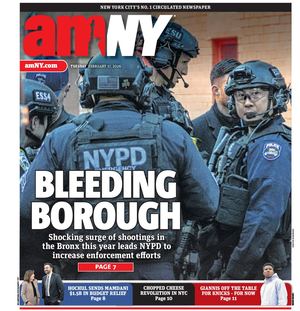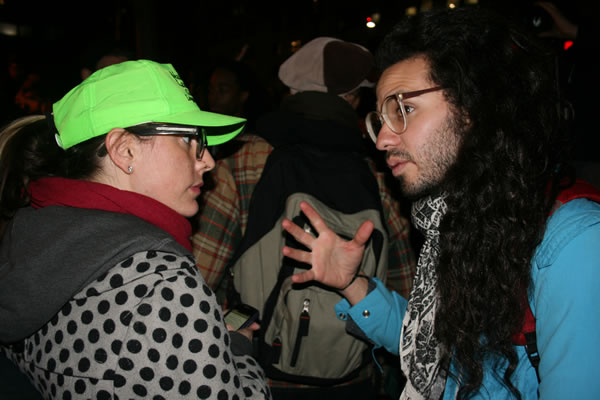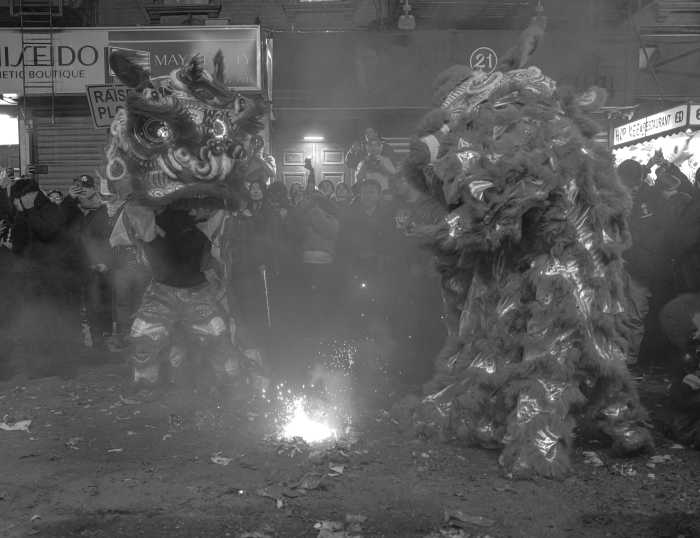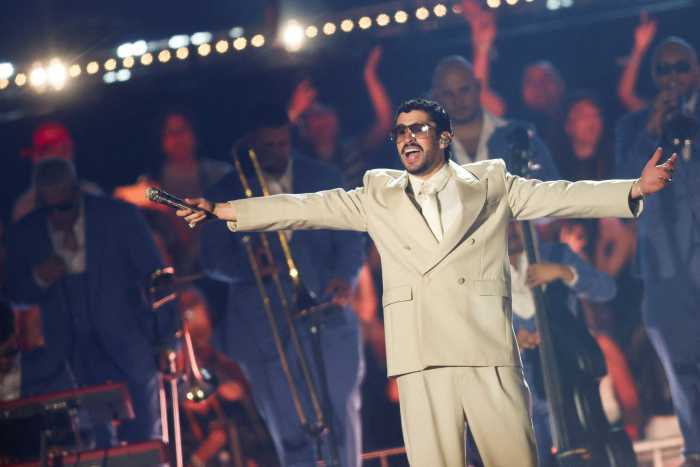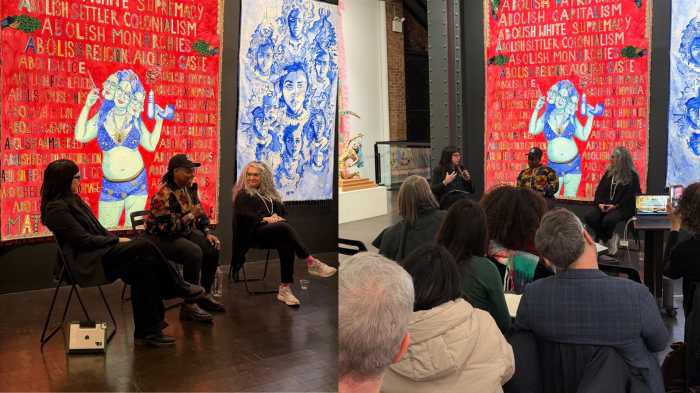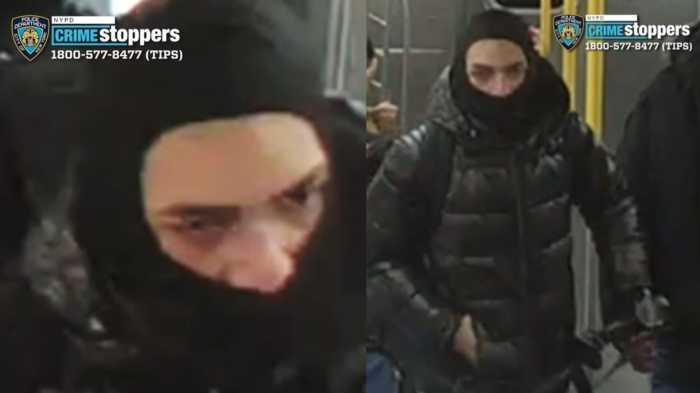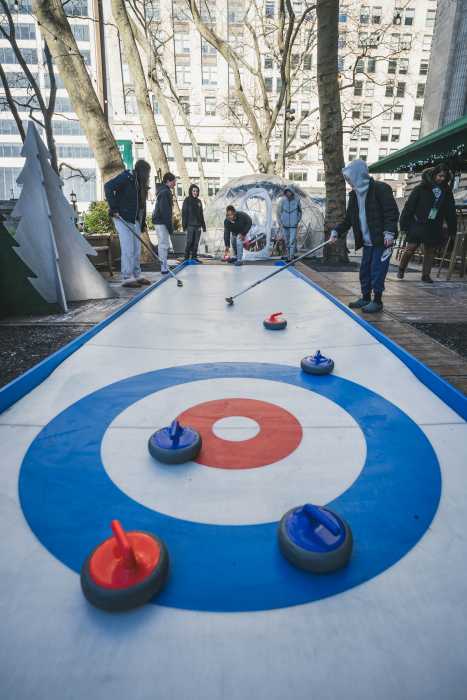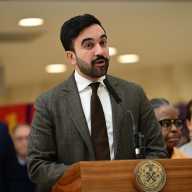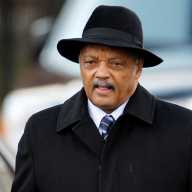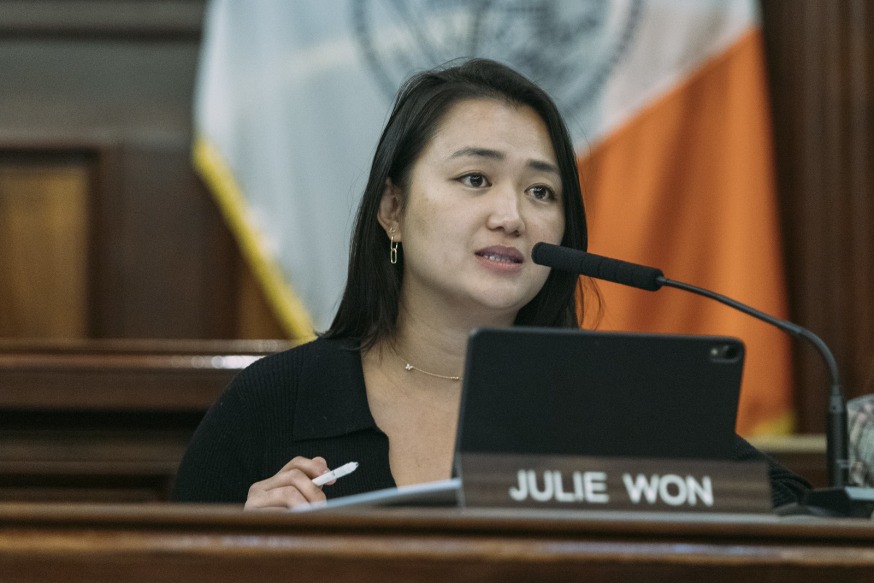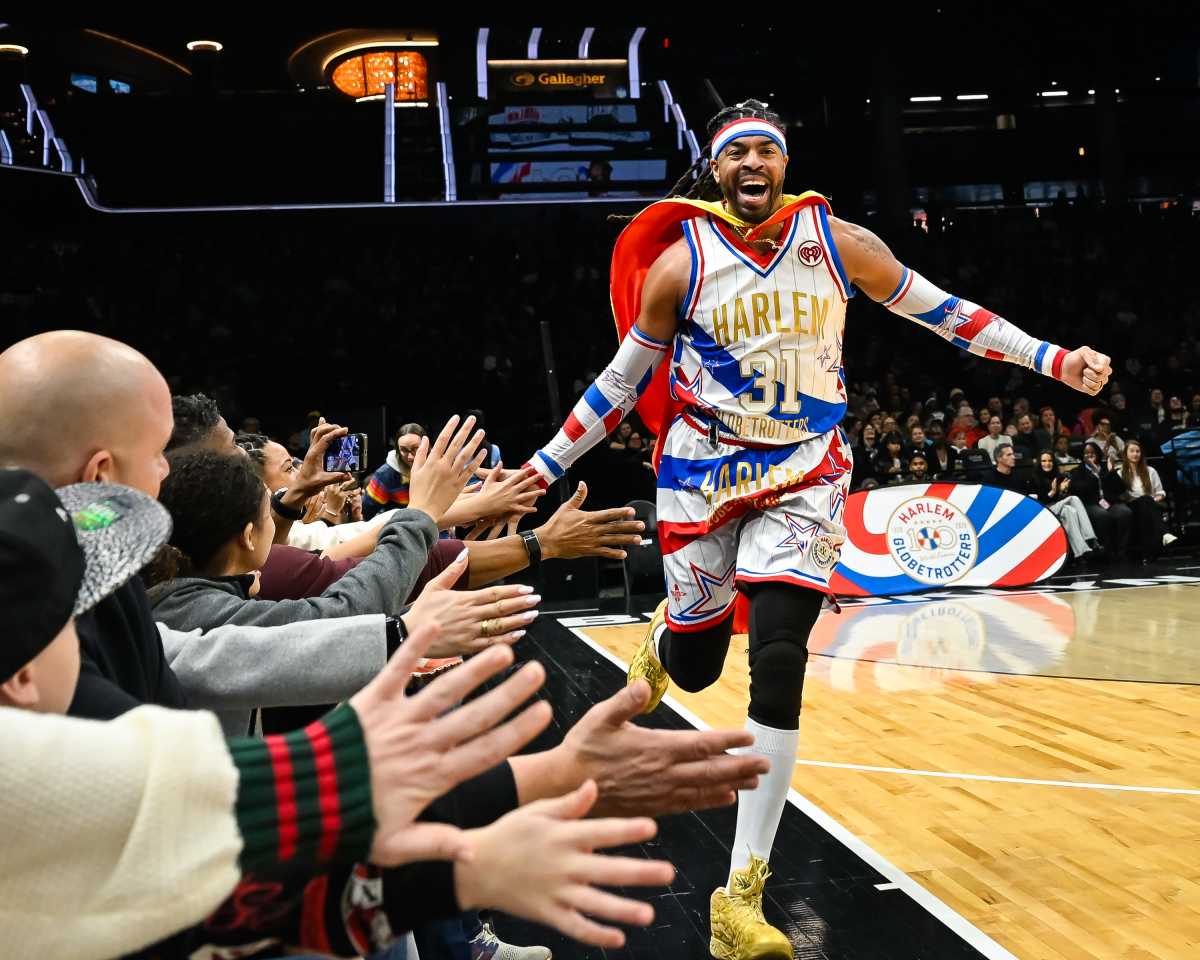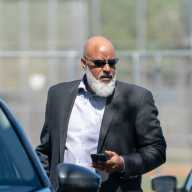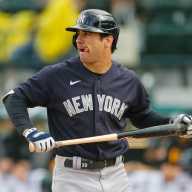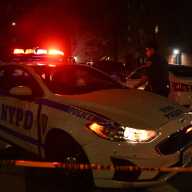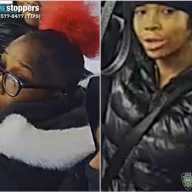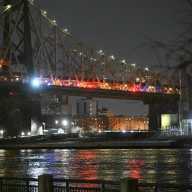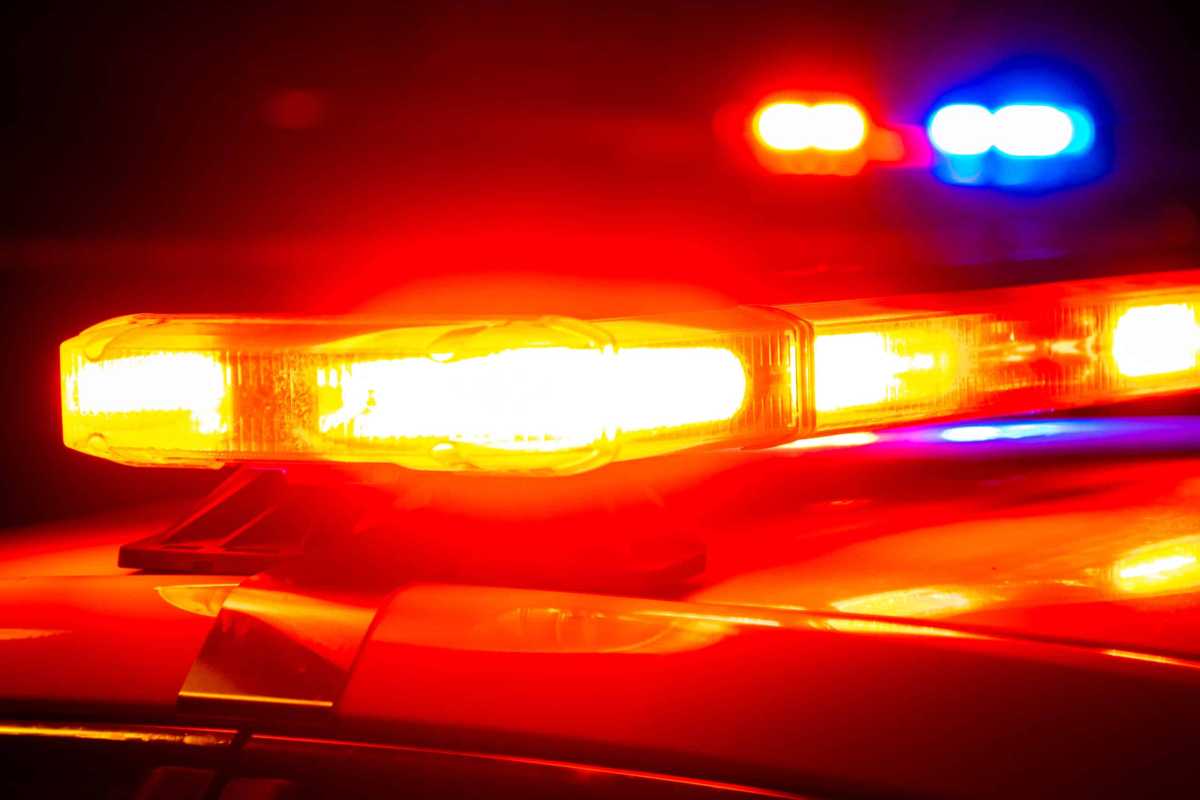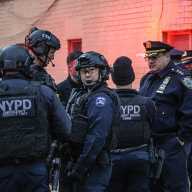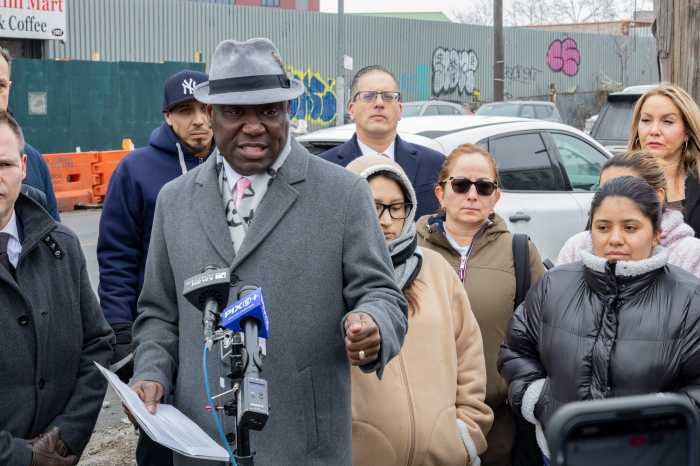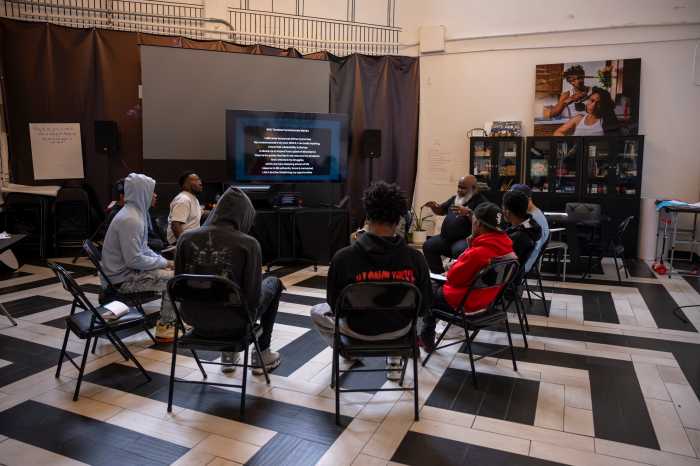BY ALINE REYNOLDS
Throughout Occupy Wall Street’s more than five weeks of demonstrations, legal witnesses have been monitoring the activity of both the Police Department and the protesters to keep tabs on who might be violating the law.
Sporting bright green caps and known as legal observers, they are volunteers for the National Lawyers Guild. They are charged with observing O.W.S. activity in hopes of deterring police abuse.
“Whatever happens, there’s a neutral witness,” explained N.L.G. volunteer Moira Meltzer-Cohen, a law student at City University of New York School of Law. “We document it, but we don’t get involved.”
While it’s important to preserve their neutrality, Meltzer-Cohen and the other observers are also supposed to interact with arrestees so that the N.L.G. can offer free legal services to the protesters once they’re released from jail.
“It’s kind of a paradox — we have to not get arrested, but we sort of have to head toward the chaos when it happens, because we have to get arrestees’ names,” said another legal observer who requested anonymity.
On Fri., Oct. 21, Meltzer-Cohen called a “mic check” to lead the Guild’s daily “Know Your Rights” training sessions. These are meant to brief protesters on responses for for when confronted by police and on their rights should a confrontation happen.
While the police have the legal authority to search people once they are arrested, Meltzer-Cohen noted, they aren’t allowed to search them otherwise.
“If the police try to search you before you have been arrested, the magic words are, ‘I do not consent to this search.’ You must say it loudly, and you must say it clearly, so that the people around you can testify that you did not consent,” Meltzer-Cohen told the crowd.
She discouraged the protesters from getting arrested if they can help it.
“Jail is excruciatingly boring. You are always more useful and happier out of jail than in it,” Meltzer-Cohen shouted.
“If you get arrested,” Meltzer-Cohen continued, “try to find somebody in a green hat and shout your name to them and your phone number.”
The male legal observer, a practicing attorney, claimed not to have witnessed any arrest-worthy conduct by protesters during his time as a volunteer, including at the Oct. 1 Brooklyn Bridge rally where more than 700 people were arrested.
The amount of police presence, the observer said, is “overwhelming” and “unnecessary.”
“I think there is definitely an ‘us-versus-them’ thing going on in the city, and it tends to originate from the top down,” noted Lisa, a civil litigation attorney who declined to give her last name. Lisa stopped by the N.L.G.’s booth last Friday to inquire about becoming a volunteer.
Lisa was horrified by the presence of police in riot gear at Washington Square Park the night of Sat., Oct. 15, following the large demonstration in Times Square that evening.
“It’s not Tiananmen Square,” she said.
Seeing democracy in action, Lisa added, is “heartwarming.”
“I want to volunteer because this is important, and a lot of people here will eventually need some help,” she said. “Hopefully, if this movement can stay nonviolent and peaceful, we will have a mild winter and the numbers will keep growing.”
Attorneys for the N.L.G. will also be defending the protesters that have been arrested and are slated to appear in court.
There have been more than 1,000 O.W.S.-related arrests so far — most for disorderly conduct, and including the more than 700 arrested on the Brooklyn Bridge.
The N.L.G. received bad news when, on Mon., Oct. 24, Manhattan District Attorney Cy Vance refused to unilaterally dismiss 750 of the cases pertaining to the mass arrests during the Sept. 24 Union Square march and the Oct. 1 Brooklyn Bridge march. Instead, Vance promised to offer 340 of the protesters “adjournments in contemplation of dismissal” (A.C.D.’s) — an option to dismiss the case if the protester isn’t arrested again within six months of the initial arrest. The remaining arrestees, meanwhile, were given summonses without this guarantee.
Either way, the decision isn’t what the N.L.G. was seeking for its dozens of clients that were charged for disorderly conduct.
“I’m very disappointed,” said Martin Stolar, a N.L.G. member who is curently representing from 12 to 15 clients. With respect to the Brooklyn Bridge protesters, Stolar said, “Most of them felt led out onto the bridge by the police. They didn’t commit a crime in their own minds, since they thought what they were doing is perfectly kosher.”
Stolar predicted that some arrestees would reject the A.C.D. option on principle for being wrongfully prosecuted, while others would do so out of fear that it could inhibit their future protest activity.
“There are a number of people who say, ‘I’m not taking anything short of a dismissal or a trial because I didn’t do anything,’” Stolar said. “There are also some people who will view the A.C.D. six-month adjournment period as a form of probation.”
The N.L.G.’s mass defense committee held a meeting for its clients on Oct. 30 and will hold another on Fri., Nov. 4, at Judson Memorial Church, on Washington Square South.
The N.L.G. also has a daily information booth set up at Zuccotti Park, where N.L.G. volunteers answer legal questions each day from 5 p.m. to 7 p.m. Civil rights attorney Jonathan Moore, an N.L.G. member who was recently manning the booth, will be representing O.W.S. arrestees in a civil court case on Mon., Nov. 21 — one of several such protester cases the N.L.G. plans to litigate pro bono in the coming weeks.
Moore wouldn’t disclose specifics of the case, though he said O.W.S. arrestees have been charged thus far with various forms of disorderly conduct ranging from obstructing traffic to refusing to comply with police orders to disperse.
The N.L.G. also played a role when O.W.S. was instructed to clear Zuccotti Park on the morning of Fri., Oct. 14, so that Brookfield Office Properties, the park’s owner, could clean it.
In an Oct. 11 letter to Police Commissioner Ray Kelly, Brookfield’s Chief Executive Officer Richard Clark called on the NYPD for assistance in its plan to clean, inspect and perform any necessary repairs to the property.
A Department of City Planning spokesperson said that Brookfield has the right to temporarily evacuate the park during a scheduled maintenance period without the city’s approval, and that the park owner could penalize trespassers using police enforcement during the allotted time frame.
The Planning spokesperson also said that Brookfield could alter the park’s rules without city authorization in order to make the space amenable to “passive enjoyment consistent with the park’s purpose.”
However, in a letter to Brookfield, the N.L.G. said, although the park is privately owned, any attempt by Brookfield to clear it out for cleaning or maintenance purposes would breach the protesters’ First Amendment rights.
Police action to enforce an evacuation without a court order would also be unlawful, the N.L.G. contended.
“I don’t think Brookfield is in a strong legal position,” said N.L.G. member Margaret Ratner Kunstler, a civil rights lawyer and one of the authors of the letter. “If they go to court, we’ll be there. And if they decide to illegally wipe people out, we’ll be there.”
Ratner Kunstler also questioned Planning’s assertions about Brookfield’s rights to rewrite the park’s rules, saying, “We’ll litigate it if necessary.”
The N.L.G.’s letter also addressed Brookfield’s concerns about the park’s cleanliness, pledging that O.W.S.’s sanitation working group is bagging and hauling away trash daily, sweeping the park regularly and polishing its hard surfaces. The N.L.G. also looked into Brookfield’s expressed concern about electrical hazards occurring below the park’s surface due to the occupation — which the company said could require the park to be torn apart for rewiring. The Guild said it found the electrical units to be sound.
“Based on a visual inspection recently conducted by our clients [O.W.S.’s sanitation working group], there has been no damage to the lenses covering the underground lighting, and thus there is no risk of water infiltration,” the N.L.G. lawyers said. “Additionally, it is our understanding that there has been no electricity running in said fixtures for weeks now” — eliminating the risk of an electrical mishap.
